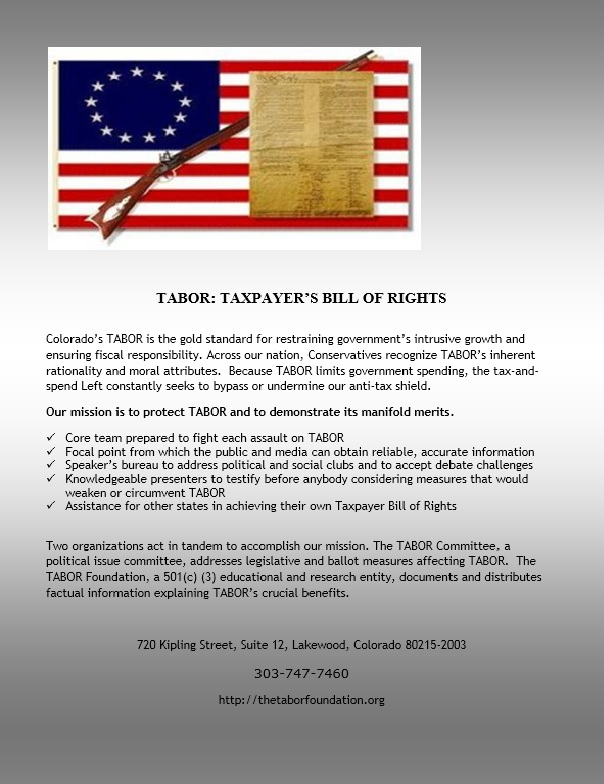By Lynn Bartels
Attorney General John Suthers has lost his request to have the entire 10th U.S. Circuit Court of Appeals rehear a decision by a court panel that ruled Coloradans have a right to challenge the constitutionality of the Colorado Taxpayer’s Bill of Rights.
The 6-4 decision by the court marks another milestone in a legal fight over how Colorado conducts its most important functions. One of the court’s 11 judges recused himself.
Colorado voters in 1992 passed the TABOR amendment, which in part limits state spending and bars lawmakers from raising taxes without a vote of the people.
A lawsuit filed against Gov. John Hickenlooper in 2011 argues that by taking away lawmakers’ ability to tax, TABOR violates the U.S. Constitution’s guarantee that every state have a republican form of government.
Suthers questioned whether the plaintiffs had the right to sue, but was rebuffed by a U.S. District Court judge. A panel of Court of Appeals judges in March concurred with the lower court.
In its 49-page decision, the 10th U.S. Circuit panel in March noted the Supreme Court has held that members of a state legislature may have standing to sue in order to vindicate the “plain, direct and adequate interest in maintaining the effectiveness of their votes.”
It did not rule on the merits of the case.
Suthers then asked for the entire court to decide whether plaintiffs had standing and other issues.
The latest decision paves the way for a trial in U.S. District Court unless the attorney general successfully seeks review by the U.S. Supreme Court.
“We are of course gratified with this decision supporting the plaintiffs’ position that the case should be heard on its merits, and we look forward to that hearing in U. S. District Court,” one of the plaintiffs’ attorneys, Mike Feeley said, in a statement.
“Now, with the procedural objections resolved and three rulings all in the plaintiffs’ favor — one in U. S. District Court in 2012 and two this year by the 10th Circuit — we hope the case can proceed without delay and without an expensive additional appeal to the Supreme Court.”
David Blake, deputy attorney general for legal policy said, “We will be discussing the case with our client but we expect to seek Supreme Court review.”
The plaintiffs, who include some current state lawmakers such as Sen. Andy Kerr, D-Lakewood, and House Majority Leader Dickey Lee Hullinghorst, D-Boulder, claims that TABOR deprives them of their ability to perform the “legislative core functions of taxation and appropriation.” Moreover, the plaintiffs say explicitly that TABOR prevents them from doing their jobs.
Lynn Bartels: 303-954-5327, lbartels@denverpost.com or twitter.com/lynn_bartels
http://www.denverpost.com/news/ci_26196416/colorado-ag-loses-another-round-from-court-appeals





 By
By